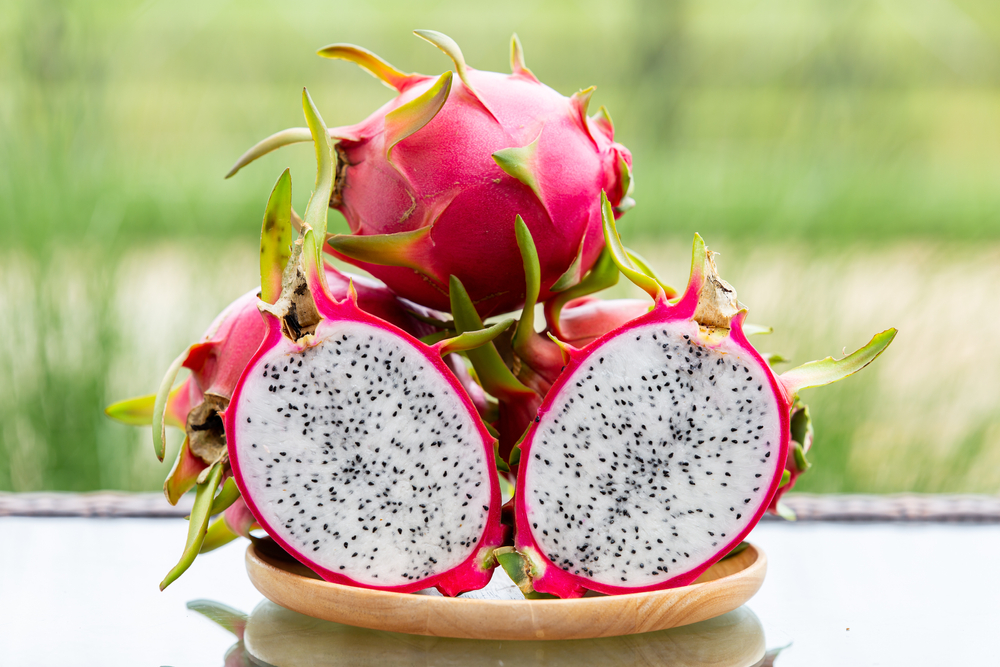
Healthy Alphabet: D is for…Four Foods that are Good for You
We are constantly bombarded with information about what we should and shouldn’t be eating which can become confusing.
Caymanrestaurants.com has decided to go for a simple approach and provide an alphabetical guide to some of the healthiest foods you can add to your diet.
We’ll be going from A-Z and listing up to five fruits and vegetables that are packed with minerals and vitamins while also providing nutritional facts on their health benefits.
We’ve already covered A, B and C, so now let’s move on to D.
Dates

Dates are mentioned in the Bible’s Old Testament and are believed to be one of the earliest cultivated foods.
They are rich in sugar and fibre and contain several essential vitamins and minerals such as calcium, iron, potassium, manganese, copper and magnesium.
Dates are highly beneficial for the body’s digestive system and can help to treat various intestinal issues and relieve constipation
Nutrition facts (1 cup):
*414 calories
*93 grams of sugar
*12 grams of dietary fibre (48% of daily value (DV))
*3.6 grams of protein (7% DV)
*0.2 milligrams (mg) of vitamin B6 (12% DV)
*27.9 micrograms (mcg) of folate
*964 mg of potassium (28% DV)
*63.2 mg of magnesium (16% DV)
Dill

Dill is a pungent herb with a strong, distinctive taste that is similar to fennel. Like most herbs, dill has some nutritional benefits and is especially a good source of calcium and vitamin A.
Dill is a natural partner for smoked salmon, omelettes and scrambled eggs, as well as tartare sauce, and in salads.
Nutrition facts (1 cup of sprigs):
*3.8 calories
*2.2 grams of carbohydrates
*675 IU of vitamin A (14% DV)
*0.2 grams of dietary fibre
*7.4 milligrams of vitamin C (12% DV)
*0.1 mg of manganese (6% DV)
*0.6 mg of iron (3% DV)
*18.2 mg of calcium (2% DV)
Dragon fruit

Originating in southeast Asia, dragon fruit is part of the cactus family.
It has bright red, leathery skin which is inedible but inside the flesh is either white or vibrant pink with tiny black seeds.
Dragon fruit is high in fibre and vitamin C and contains various nutrients in the flesh from phytochemicals in its vibrant pink pigment. It is also full of antioxidants which protect the body’s cells from damage, along with minerals such as iron, phosphorous, protein, and niacin.
Nutrition facts (100 grams):
*52 calories
*1.1 gram of protein
*0.4 grams of fat
*11 grams of carbohydrates
*3 grams of fibre
*20.5 mg of vitamin C (34% DV)
*1.9 mg of iron (11% DV)
*22.5 mg of phosphorus (2% DV)
Dried apricots

If you are prone to sugar cravings, dried apricots are an ideal alternative sweet snack that will also provide health benefits.
Packed with antioxidants, dried apricots are a good source of calcium, dietary fibre, potassium, iron and vitamin A and they’ve been known to improve digestion, relieve constipation and treat anaemia.
Nutrition facts (1 cup halves):
*313 calories
*9.5 grams of dietary fibre (38% DV)
*81.4 grams of carbohydrates
*4.4 grams of protein
*4686 IU of vitamin A (94% DV)
*5.6 mg of vitamin E (28% DV)
*3.4 mg of niacin (17% DV)
*0.2 mg of vitamin B6 (9% DV)
Watch out for the rest of the healthy food alphabet in this series to be published this year on Caymanrestaurants.com.
By Karen Rollins
Karen is the senior writer for Yello Media Group of which Caymanrestaurants.com is a subsidiary, and this article originally published on Findyello.com in 2020.
Sources: The Food Coach / BBC Good Food / Medical News Today / Organic Facts / Nutrition Data / Draxe
